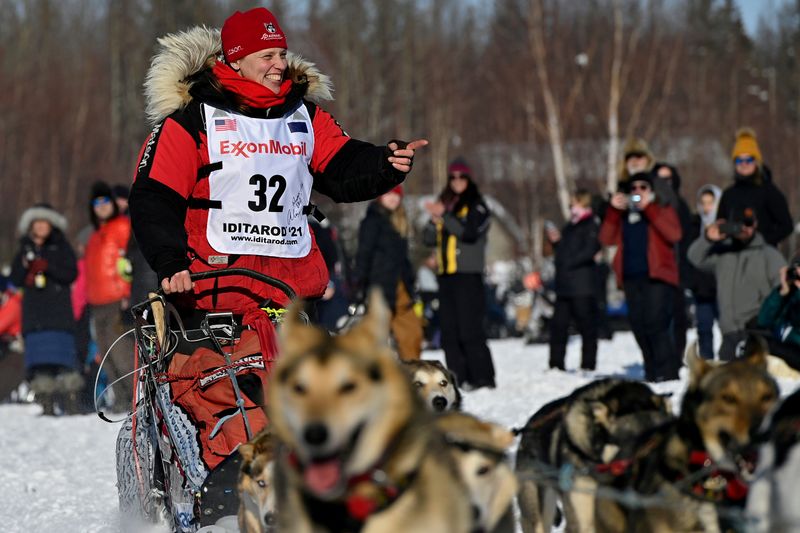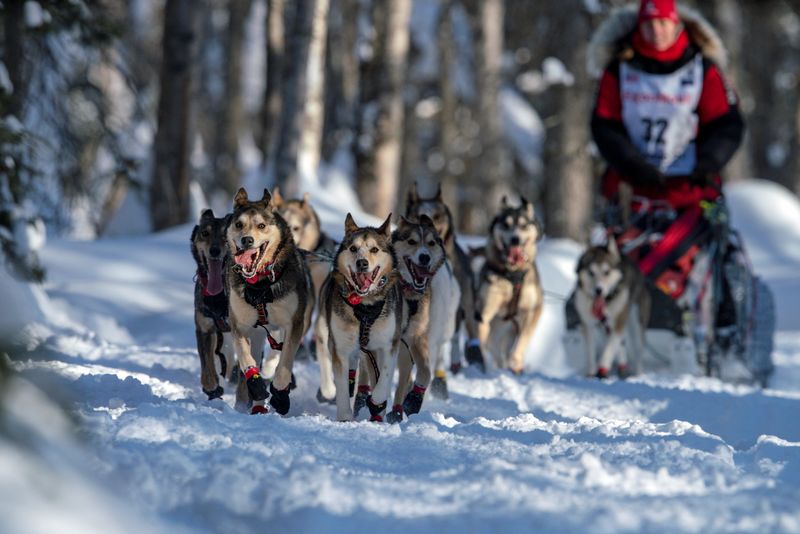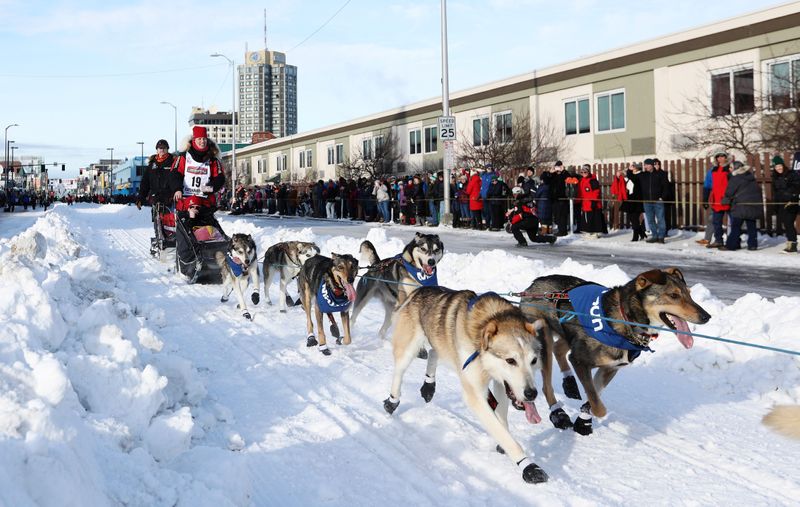ANCHORAGE, Alaska (Reuters) – The top woman competing in Alaska’s Iditarod sled dog race, Aliy Zirkle, has been forced out of the contest after suffering a concussion and other injuries on the trail two days into the event, organizers said on Tuesday.
No details of the mishap were immediately available. But Zirkle, a fan favorite, was evacuated from the trail at Rohn, a checkpoint 183 miles into the race, and sent to an Anchorage hospital for medical treatment, organizers said.
She arrived at Rohn Monday night “after sustaining a significant impact that resulted in a concussion and orthopedic injuries to her upper torso,” the Iditarod said in a statement.
Rohn is the first checkpoint for mushers after crossing the mountainous Alaska Range. The trail leading into Rohn contains steep drops and narrow twists, making it one of the most challenging stretches of the race.
Zirkle was later released from the hospital and was resting in Anchorage with family members, according to the statement.
Zirkle’s 14 dogs were unhurt and were being cared for at the Rohn checkpoint on Tuesday, the statement said. They will be flown to Anchorage and then driven back to Zirkle’s Fairbanks-area home, the organizers said.
Zirkle, 50, was considered the leading female contender in this year’s 49th annual Iditarod Trail Sled Dog Race and one of the top contestants overall. She finished as runner-up three years in a row – in 2012, 2013 and 2014 – and has been a frequent top-five finisher.
In 2000, she became the first woman to win another major sled-dog marathon, the 1,000-mile (1,610-km) Yukon Quest from Fairbanks to Whitehorse in Canada’s Yukon Territory. In February she announced she would retire after this year’s Iditarod.
A New Hampshire native, Zirkle began mushing after moving to Alaska at 20. Her husband, Allen Moore, is a three-time Yukon Quest champion.
This year’s Iditarod got under way on Sunday with 46 mushers and their teams of huskies dashing off into the Alaska wilderness on a course drastically rerouted, and shortened, due to the coronavirus pandemic.
Rather than the usual racing route from Anchorage to Nome, the gold-rush town on the Bering Sea coast, the 860-mile (1,380 km) race is being run to and from a remote spot along the Deshka River in Willow, about 75 miles (120 km) north of Anchorage.
The total distance is roughly 100 miles (160 km) shorter than the traditional route to Nome.
(Reporting by Yereth Rosen in Anchorage; Editing by Steve Gorman, Jonathan Oatis and Dan Grebler)



























